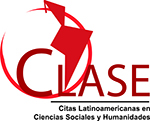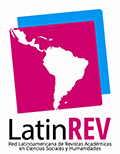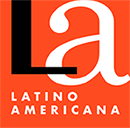Man as He Is and Man as He Should Be: An Exploration of the Current Echoes of the Fallen Nature Debate
Abstract
The question of how to deal with the problem of evil has accompanied politics since its origins. Motivated by some statements by Pope Francis on property rights, the work aims to draw an overview of the debate, as it arises in modernity, regarding whether politics, in the words of Machiavelli, should treat men as they are or just as they should be. In dialogue with theology, the work distinguishes four fundamental positions: that of the "realists" (Machiavelli, Spinoza, Hobbes, Mandeville), that of those who defend that man is a being that can live according to what he should be (Hutcheson, Shaftesbury), that of those who believe that universal brotherhood is the attainable goal due to the development of history (Hegel, Feuerbach, Marx), and that of those who believe that politics must take into account both the dignity and the fallen nature of the human being (Pascal), showing, at the same time, the contemporaneity of this debate.
Downloads
References
Bellah, R. (1996). Habits of the Heart: Individualism and Commitment in American Life, Updated Edition with a New Introduction. University of California Press.
Benedicto XVI. (2005). Deus caritas est.
Benedicto XVI. (2009). Caritas in veritate.
Cassirer, E. (1943). La filosofía de la Ilustración. Fondo de Cultura Económica.
Basso, D. M. (1993). Opción por los pobres. Fundamentos teológicos. Editorial Bonum.
Engels, F. (1980). Ludwig Feuerbach y el fin de la filosofía clásica alemana. Editorial Progreso.
Etzioni, A. (1999). La nueva regla de oro: Comunidad y moralidad en una sociedad democrática. Paidós.
Etzioni, A. (2006). El guardián de mi hermano. Autobiografía y mensaje. Ediciones Palabra.
Feuerbach, L. (1971). La esencia del cristianismo. Juan Pablos Editor S.A.
Finkielkraut, A. (1993). La sabiduría del amor. Generosidad y posesión. Gedisa Editorial.
Genovesi, A. (1785). Continuación de la Primera Parte de las Lecciones de Comercio o bien de Economía Civil (Tomo segundo). D. Jachín Ibarra Impresor.
Guevara, E. (2011). El socialismo y el hombre en Cuba. CLACSO.
Habermas, J. (2006). Entre naturalismo y religión. Paidós.
Hamilton, A., Madison, J. y Jay, J. (1982). El Federalista. Fondo de Cultura Económica.
Hirschman, A. O. (1999). Las pasiones y los intereses. Argumentos políticos en favor del capitalismo previos a su triunfo. Ediciones Península.
Hobbes, T. (1994). Leviatán. O la materia, forma y poder de una república eclesiástica y civil. Fondo de Cultura Económica.
Hobbes, T. (2020). Elementos Filosóficos. Del ciudadano. Hydra.
Hume, D. (1997). Tratado de la naturaleza humana. Editorial Porrúa.
Hutcheson, F. ([1728] 2002). An Essay on the Nature and Conduct of the Passions and Affections, with Ilustrations on the Moral Sense. Liberty Fund.
Hutcheson, F. (2007). Philosophiae moralis institutio compendiaria with a Short Introduction to Moral Philosophy. Liberty Fund.
Kant, I. (1969). La religión dentro de los límites de la pura razón. Alianza Editorial.
Kant, I. (1977). Fundamentación de la metafísica de las costumbres. Crítica de la Razón Práctica, La paz perpetua. Editorial Porrúa.
Löwith, K. (2007). Historia del mundo y salvación. Los presupuestos teológicos de la filosofía de la historia. Katz.
Maquiavelo, N. (1970). El príncipe. Espasa Calpe.
Mandeville, B. ([1728] 2001). La fábula de las abejas o los vicios privados hacen la prosperidad pública. Fondo de Cultura Económica.
Marrou, K. I. (1978). Teología de la Historia. Rialp.
Marx, K. (2 de marzo de 2021). Glosas marginales al programa del partido obrero alemán. https://www.marxists.org/espanol/m-e/1870s/gotha/critica-al-programa-de-gotha.htm.
Niebuhr, R. (1966). El hombre moral en la sociedad inmoral: un estudio de ética y política. Ediciones Siglo Veinte.
Pascal, B. (1955). Pensamientos. Editorial Iberia.
Robertson, J. (2005). The case for the Enlightenment: Scotland and Naples (1680-1760). Cambridge University Press.
Sandel, M. (2013). Lo que el dinero no puede comprar: Los límites morales del mercado. Random House Mondadori.
Schmitt, C. (1991). El concepto de lo político. Alianza Editorial.
Schmitt, C. (2005). Teología Política. Cuatro ensayos sobre la soberanía. Editorial Struhart & Cía.
Smith, A. (1994). La Riqueza de las Naciones. Fondo de Cultura Económica.
Smith, A. (1997). La teoría de los sentimientos morales. Alianza Editorial.
Spinoza, B. (1986). Tratado político. Alianza Editorial.
Spinoza, B. (1977). Ética. Porrúa.
Taylor, C. (1989). Sources of the Self: The Making of the Modern Identity. Harvard University Press.
Tomás de Aquino. (1956). Suma teológica. B.A.C.
Tomás de Aquino. (1993). Suma Teológica. B.A.C.
Trotsky, L. (2 de marzo de 2021). Literatura y revolución. https://www.marxists.org/espanol/trotsky/120s/literatura/8a.htm.
Walzer, M. (1986). Éxodo y revolución. Per Abbat.
Walzer, M. (1993). Las esferas de la justicia. Fondo de Cultura Económica.
Walzer, M. (2008). La revolución de los santos: Estudio sobre los orígenes de la política radical. Katz.
Copyright (c) 2023 Joaquín Migliore

This work is licensed under a Creative Commons Attribution-NonCommercial-NoDerivatives 4.0 International License.
This license allows the copy, distribution, exhibition and representation of the work provided authorship is acknowledged and the work is properly quoted. Commercial use of the original work or the generation of derived works are not allowed.
The authors hereby guarantee the right to the first publication of the work to the Revista Política Austral.




































